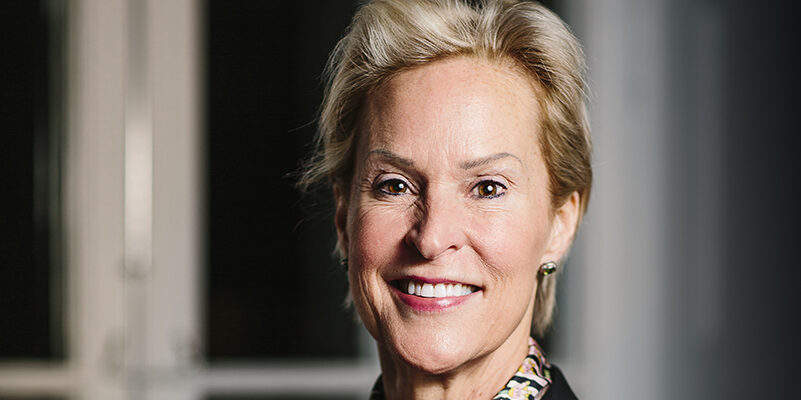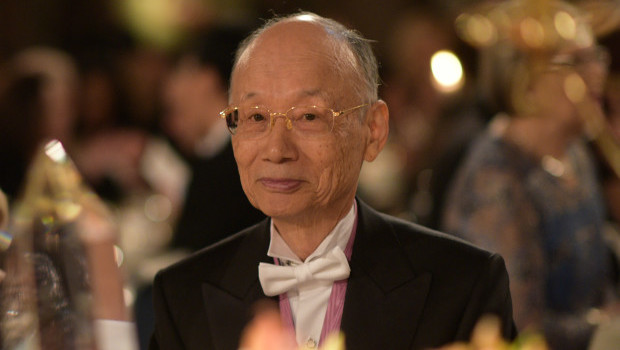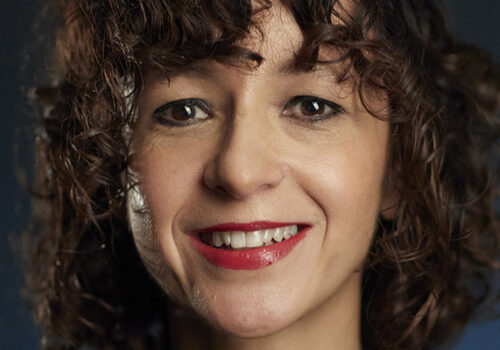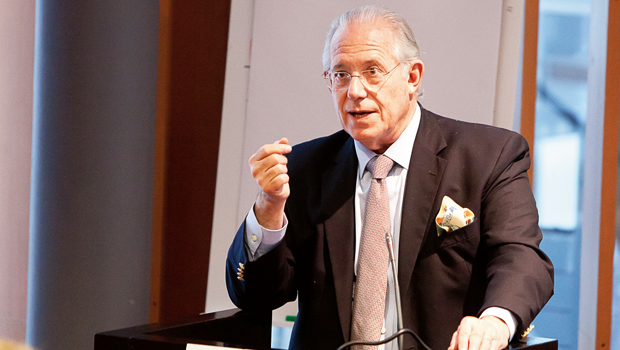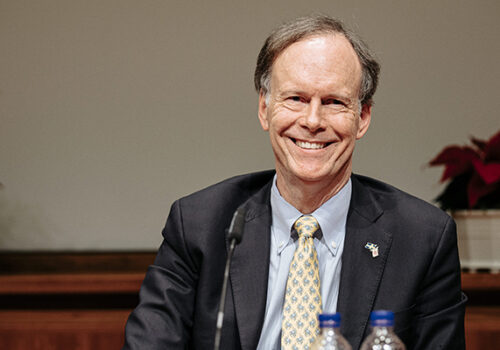It is International Women’s Day and and we like to highlight some of the many inspiring women in life science we have had the opportunity to meet and interview.
Frances H. Arnold is a Nobel Laureate in Chemistry 2018. Learn more about her bold approaches to optimizing enzymes for society’s benefit.
“I’m interested in big questions,” says Frances Arnold. And nothing stops the 2018 Chemistry Nobel Laureate from answering them.
Arnold, the California Institute of Technology Linus Pauling Professor of Chemical Engineering, Bioengineering and Biochemistry, received half the 2018 award, with half to Gregory Winter, University of Cambridge and George P. Smith, University of Missouri.
The honor was for directed evolution of enzymes, which Arnold alters to have science-fiction abilities. She gets proteins to work at temperatures or in solvents that kill ordinary enzymes. She directs them to bond carbon to silicon for compounds never found in cells.
“How do you compose new DNA to solve problems for humans?”
Her methods – creatively applying mutation, selection, and recombination to alter a protein’s substrates, products, or activities – combines what she calls “the simple algorithm of evolution” with selective breeding principles. She describes her work as: “How do you compose new DNA to solve problems for humans?”
Toward sustainability
The problems Arnold solves center on sustainability. “It will take a lot of creativity to figure out how to make materials, food, chemicals, and fuel to sustain our daily lives without destroying our natural world,” she says. “I’d like to see the most creative scientists working on these problems.”
“When I set out to do protein engineering, I wanted to make proteins that people will use.”
Arnold’s research is pragmatic and multidisciplinary, simultaneously basic and applied. She was inspired by biotech companies such as Genentech that launched early in her career.
“When I set out to do protein engineering,” she says, “I wanted to make proteins that people will use.”
Jeffrey Moore, principal scientist at Merck, has worked with Arnold since earning a PhD in her lab in the 1990s. He was part of groundbreaking studies showing that mutations that alter protein activity can occur outside the active site. These changes are hard to predict but revealed by directed evolution, say proponents of the method.
“Frances has amazing insights into what industry, academia, and the world need,” Moore says. “She’s able to rapidly drill down to core issues and she’s always ‘scientifically on,’ challenging and pushing ideas.”
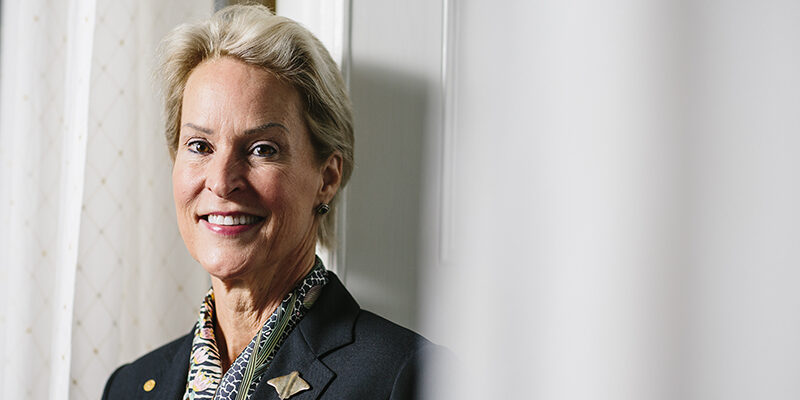
Frances Arnold at the Nobel Press Conference 2018. Copyright: Nordic Life Science. Photo: Jenny Öhman
Arnold partners with industry on projects that meet her criteria: “They have to advance our methods, be challenging intellectually and show how protein engineering can solve a range of problems.”
Her work is vital for the life science industry. At Merck, Moore says, almost all enzymes for pipeline drugs have been improved by Arnold’s methods. The same is true at Nordic-based enzyme producer Novozymes. Directed evolution is used, he says, “anyplace enzymes are adding value to society – oil, commodity chemicals, pharmaceuticals, household products.”
Of special interest to the drug industry is Arnold’s work on cytochrome P450 enzymes. Through rounds of mutagenesis, selection or screening, and recombination, her group coaxed a diversity of activities out of P450s. Resulting enzymes catalyze steps in making new drugs and their human metabolites for toxicity testing, serve as medical imaging contrast agents, and replace toxic or precious metals in making polymers and chemicals.
Arnold now uses machine learning to identify DNA and amino acid sequence patterns linked to specific functions for a head start on optimizing proteins. “We’re developing machine learning methods to discover patterns and then evolve them,” she says. A challenge, though, is getting data scientists, software engineers, biologists, and chemists to collaborate.
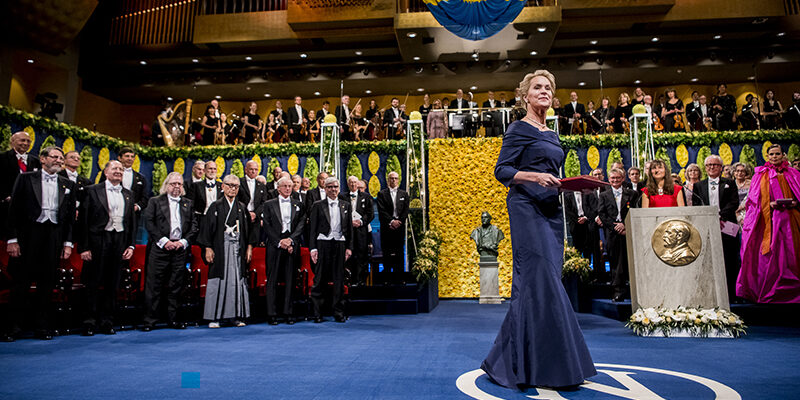
Frances Arnold at the Nobel Prize Award Ceremony in Stockholm 2018. Copyright: Nobel Media. Photo: Alexander Mahmoud
The Arnold community
If anyone can bring people from diverse fields together, it’s Arnold. Pedro Coelho earned a PhD in 2013 with Arnold. Lab meetings, he says, are “a mini-cosmos of people spanning all areas, with biophysicists, engineers, chemists, and biologists tackling projects from cutting-edge chemical synthesis to computational biology.”
“Frances is razor sharp, but she doesn’t spoonfeed you. She wants you to take the initiative.”
Coelho is now CEO of Provivi, a 65-person company based in California that uses directed evolution on pathways and enzymes making insect pheromones for agriculture. The potential to reduce pesticide use aligns with Arnold’s sustainability interests. She is a cofounder, board member, and investor.
The lab was excellent preparation for a business career, Coelho says, because of an “entrepreneurial” culture. “Frances is razor sharp,” he says, “but she doesn’t spoonfeed you. She wants you to take the initiative.”
Developing a company is a long road
Arnold calls her leadership approach “bottom up.” She expects all to contribute and critique ideas. “I encourage every member of my team to be a brain,” she says. Her involvement in startups including Gevo for chemicals and biofuels, begins with people in her group and their ideas. Developing a company is “a long road,” she says. “Students and postdocs have the vision – and the energy – to go down it.”
The Nobel Prize adds to Arnold’s extensive legacy in science, engineering, medicine, and business. Moore says that everyone using her methods feels connected to the honor: ”Frances says, ‘I received this award, but it’s for all of us,’ and the entire community feels that way.”
Photo: Jenny Öhman/Copyright: Nordic Life Science


